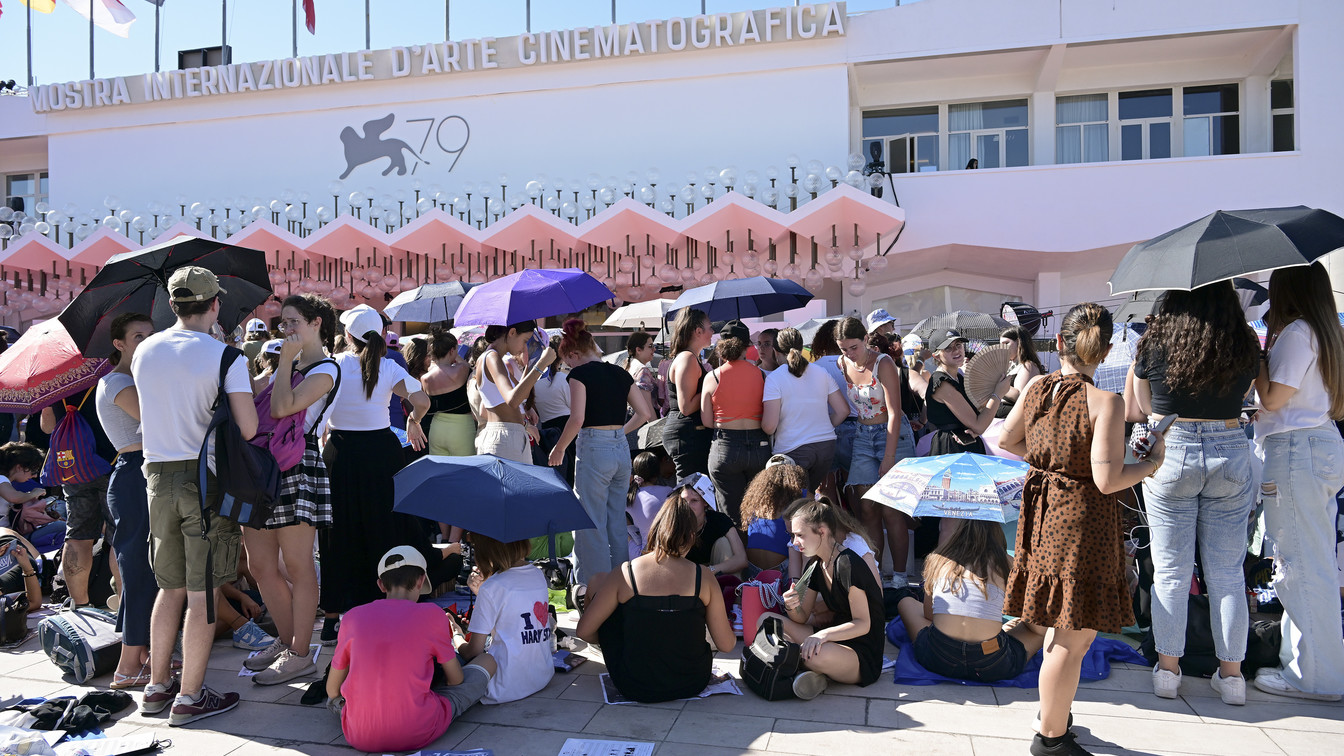

If the movies are supposed to tell it as it is, it was a festival as precise as a shot in the heart from a Colt; but if they are supposed to be a source of dreams and provocation, it was a festival watered down like a spritz, the official cocktail in these parts, but without the fizz of the prosecco.
So here we are, exactly as we are after two years of pandemic. With a glass in hand to make the ice clink in bars or at the parties that have resumed at the Lido to lift our spirits, but still fairly gloomy. Eighteen films in the running for the 'Golden Lion', not even one comedy. No one who tried to make us laugh: there was Paolo Virzì out of competition with Siccità (Drought), who at least tried to joke with the apocalypse of a dried-up Rome, but they kept him out, as you had to be contrite to be part of the competition.
Many stories of crime and legal drama, many of the past, as if invention, getting carried away by even mild fantasy, were somehow blasphemous. Argentina 1985 about the two prosecutors who investigated the heads of the military junta that led the country until 1983. The Lord of the Ants by Gianni Amelio on the trial of a homosexual intellectual in the 1960s accused of plagiarizing his young lover. Saint Omer by Senegalese Alice Diop on the court case of a mother accused of infanticide. All the Beauty and the Bloodshed: Nan Goldin's battle to have the Sackler family held liable for deaths by drug overdose. A lot of gender fluidity, a reality that is the focus of many authors even in other areas: see also Mario Desiati, winner of the Strega Prize with Spatriati. In Immensità, Emanuele Crialese reveals his past as a little girl locked in a body he never accepted and in a press conference he reflects on how much more painful it was for him to find his identity than is is for kids today.
there was Paolo Virzì out of competition with Siccità (Drought), who at least tried to joke with the apocalypse of a dried-up Rome, but they kept him out
Andrea Pallaoro in Monica lingers on the tiring search for self by a trans woman who returns to her dying mother after a long absence. Reactions of the theater audiences to the films? Lukewarm. The audiences are attentive: they switch their phones off, in part because the controls are rightly very strict; then, once the screening is over, the screens light up immediately on their digital prostheses and they get up and go. No whistles, standing ovations are rare. The loudest applause for Jafar Panahi's No Bears, which again is strongly connected to reality because the Iranian director has been in prison since July and plays himself in the film. The filmmakers dedicated a flash of solidarity to him on the red carpet: the only political moment of the festival; otherwise, not even the upcoming elections lifts the spirits.
Oliver Stone, with his documentary in favor of nuclear power, tries to shake things up a little by invoking a pact with Russia... but fails. The movie enthusiasts, who are the most stirring part of the festival—people who watch even four films a day, spend a fortune on a place to sleep on the Lido or travel back and forth on the vaporetto to Venice—hold discussions in the lines for the bathroom, at the bar, while they try to book the movies using the unpopular online system, but always with the calmness of a game of bridge. Then there is the other festival, the show of tasteless ostentation that continues to grow and happens right in the most sacred of places: the red carpet, once the walkway of the stars or at least of artists linked to the movies, has become the ground of the influencers and the “follower-starved” personalities.
This year, for the first time, there was also the fairytale version of a marriage proposal
This year, for the first time, there was also the fairytale version of a marriage proposal: him kneeling with the ring; her, beautifully dressed, accepting her diamond ring for the photographers. Then everything is fed to the social networks, where there is another very noisy festival going on—not much to do with movies—with more and more followers, which, beware, after occupying the red carpet, could also break into the theaters. Watch out, festivals, next year you reach 80!
La giuria di Venezia 79, presieduta da Julienne Moore affiancata da Mariano Cohn, Leonardo Di Costanzo, Audrey Diwan, Leila Hatami, Kazuo Ishiguro e Rodrigo Sorogoyen, ha assegnato il Leone d'Oro al documentario 'All the Beauty and the Bloodshed' di Laura Poitras, il Leone d'Argento a 'Bones and All' di Luca Guadagnino e il Premio Speciale della Giuria a Jafar Pahami per 'No Bears'. Tra gli attori hanno conquistato i riconoscimenti più importanti Colin Farrell interprete negli 'Spiriti dell'Isola' e Cate Blanchett nel film Tar mentre il Premio Mastroianni per i giovani va a Taylor Russell, protagonista in 'Bones and All'. Premio per la miglior sceneggiatura a Martin MacDonagh sempre per 'Gli Spiriti dell'Isola'. "Le decisioni - ha spiegato Moore - non sono state unanimi in nessuna categoria ma alla fine siamo soddisfatti e orgogliosi del nostro lavoro".